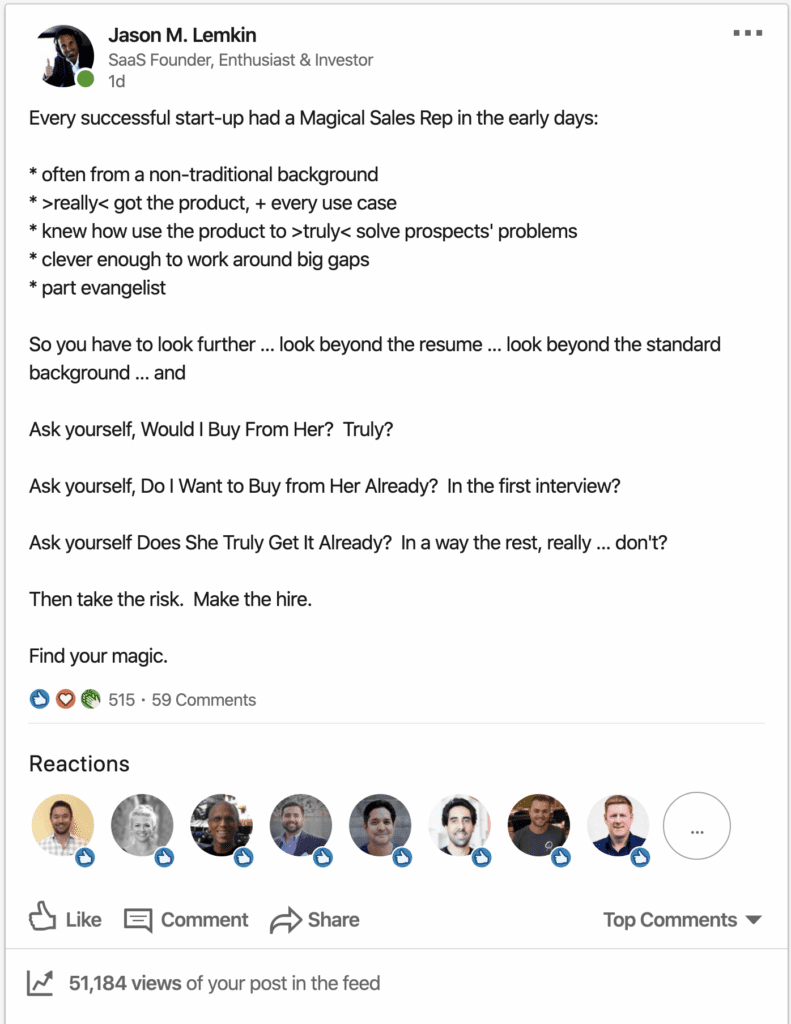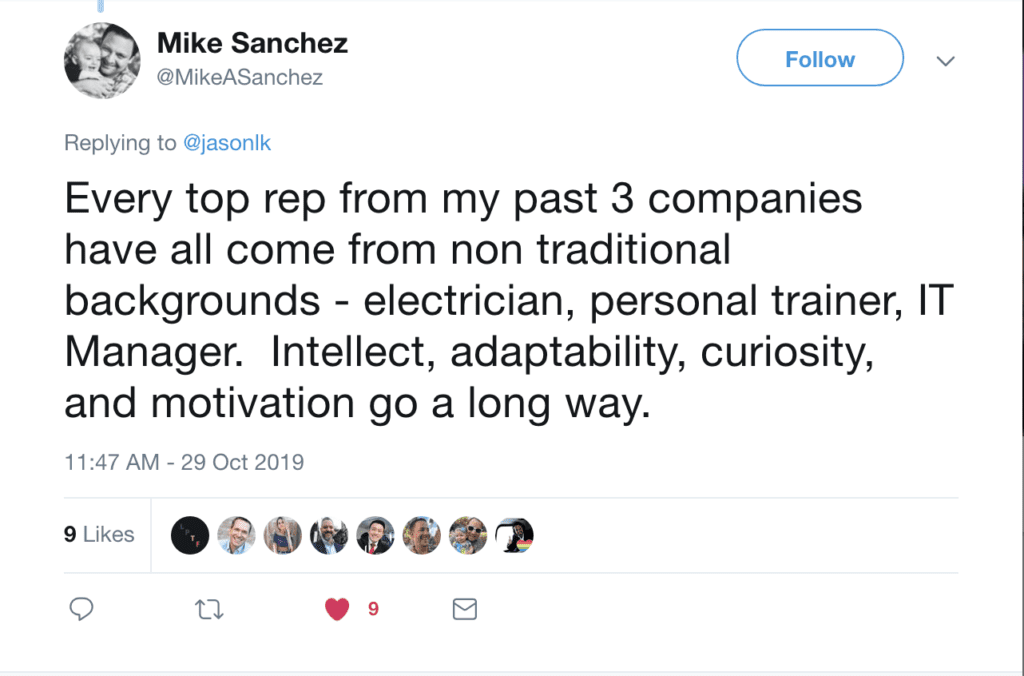A little while back on LinkedIn and Twitter we had over 100,000 views and engagements on a quick post on The Magical Sales Rep.
It’s worth a deeper dive.
The transition from founder-led sales to a true sales team is often a rough one. Most founders aren’t actually particularly great salespeople, but boy, they are good “middlers”. If a lead comes in, founders know how to talk to them. How to hack the product to make it work for the prospect. How to have an honest conversation about competition, about feature gaps, and about … the future of the product and the industry. How to be a true evangelist.
Most sales reps really can’t do this. Very few can. And frankly, as you scale to 10 reps, 100 reps, and beyond, you don’t need evangelists. You need sales experts.
But these seasoned, Presidents-club attending sales experts often just melt and fail when they are the first rep in the company. They don’t have the passion for the space, the deep product knowledge, and the passion that a founder has. And they often just can’t learn on their own. They can’t almost intuitively understand why a new product, without a brand, without a massive marketing presence, truly matters to buyers. And without that understanding, they can’t answer the questions, design a solution, and … sell your product.
Most SaaS companies you will find had this Sales Magician as their first successful sales rep. Someone that maybe wasn’t even the very very best sales rep, but was good enough to close, and incredibly fluent and passionate about the product.
These Sales Magicians are often smarter than the average rep. And importantly, often come from a less traditional background. Maybe they were mid-pack, at best, at a second-tier SaaS company. Maybe they came out of an adjacent industry. Often, they don’t fit the mold you would expect. Like most “natural athletes”, they tend to make up for any gaps with high EQ and IQ about your product, customers, and mission.
The trick, the hack, is to find a sales rep you would buy from as founder. You truly would buy from, even during the first meeting with her. If you don’t have that, you’ll never successfully transition from founder-led sales. You’ll never trust her with those few, precious leads. You have to want to buy from her. If you do — the founder that has sold to the first 10, 20, 100 customers — then the prospects will, too.
Even if her domain expertise, lack of degrees, and quirky LinkedIn doesn’t quite fit what you might expect for your Magical Sales Rep.
I remember the first time I realized my first successful sales rep was a Sales Magician. I was at Dreamforce, and right on the street, one of our customers grabbed me by the arm — forcefully. The customer said, “Hey, are you with EchoSign?” “Yes,” I said. “I LOVE Joe. We all LOVE Joe. I’ve never met someone so passionate about e-signatures!”. Our sales magician.
Now later, you won’t need too many of these magicians. Often, there is just 1. After reps 2-3, you start to train them. You find a VP of Sales, and she puts in places processes, and deal reviews, and collateral, and so much more. The Sales Magician is rarely rep #4. And remember, later, the organization may not even need magicians. So make sure there is always a key role for your Sales Magician, later.
But in every great SaaS success story, there is often a Sales Magician. Ask almost any SaaS CEO. This special hire that was the first great sales rep, when the others before her … failed. And she often came from a background no one would have quite predicted.
A bit more here:
(note: an updated SaaStr Classic post)



